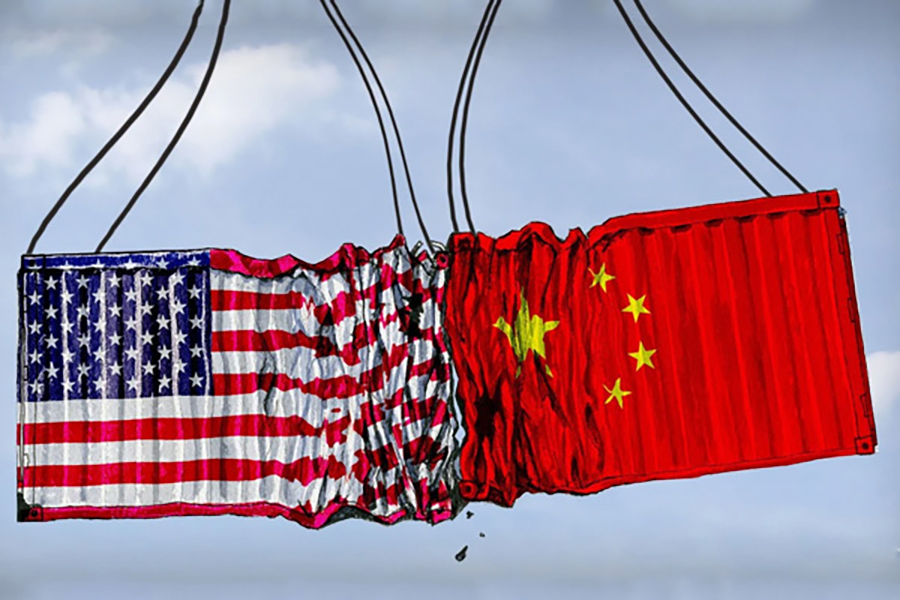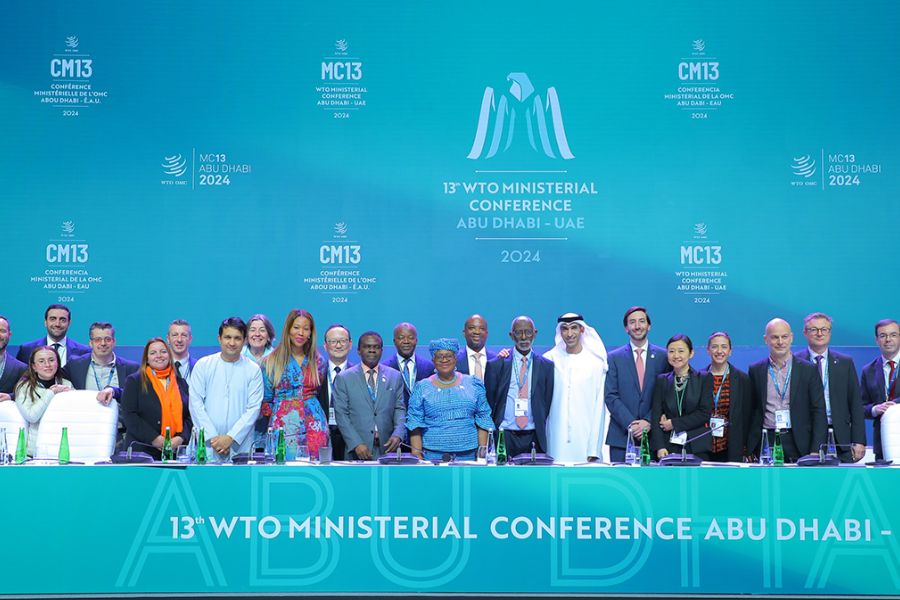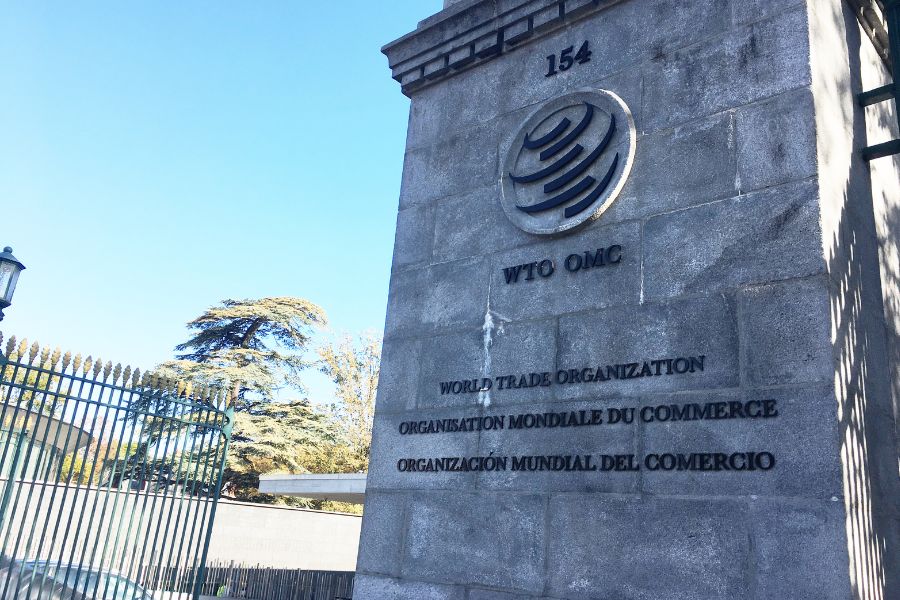FTP 2023: New business avenues via merchanting trade
The new merchanting policy, as mentioned in the Foreign Trade Policy 2023, will now allow trade of restricted items without touching Indian shores. The tweak in policy will be beneficial to merchants, helping them access lucrative opportunities as well as conserve their business interests.

Photo Source: Shutterstock
New Delhi, April 6: On March 31, the Directorate General of Foreign Trade (DGFT) announced renewed Foreign Trade Policy after a gap of over two years. The announced offered numerous new initiatives and policy change but one of the provisions, which stood out was Merchanting Trade. The central government, with the new FTP in place, is looking to expand India’s business capacities, given its massive target of US$ 2 trillion in services and goods exports by 2030.
Merchanting trade, also known as intermediary trade, means a merchant (or the intermediary) will be resident in India, but shipments of goods will take place from one foreign country to another foreign country without touching India’s territory. This process would result in reduced transaction costs for smaller firms, which have a major share in India’s goods exports.
Flexible leaps and bounds of merchanting trade
As per the FTP 2023, merchanting trade of restricted and prohibited items would now be possible. However, this will be subject to compliance with RBI guidelines, and will not be applicable for goods and items classified in the CITES and SCOMET list.
For goods to be classified under merchanting trade, the intermediary has to ensure that the goods acquired should not enter the Domestic Tariff Area (DTA) of the importing country and the state of the goods should not undergo any transformation and meant for transport from country of supplier to the country of the buyer.
In terms of global economies, there are several countries such as Finland, Ireland, Sweden, and Switzerland where merchanting trade has grown strongly in the last decade or so. On merchanting trade, the Reserve Bank of India (RBI) had framed guidelines keeping in mind the changing geo-economic realities vide its circular released in 2020.
A much awaited decision!
Dr. Ram Singh, Professor and Head (MDPs) at Indian Institute of Foreign Trade has lauded the move to allow restricted items to be included as a part of merchanting trade. Speaking exclusively with IBT, Dr. Singh said that while merchanting trade has been in place since 2014, it was later revised through a master circular on January 23rd, 2020.
“Through merchanting trade, Indian traders are buying cheap goods in bulk quantities and sending it to another country directly. The other provision was to keep those goods in the Special Economic Zones, and then ship it to other countries in small quantities. This time a new provision has been introduced wherein restricted item can also be traded without hampering the domestic- political economy,” Dr. Singh explained.
“Items which are adequately available and we do not want to get from outside such as particular cereals. Also, on certain items with issues which are related to inspection, testing, calibration and so on, have now been allowed to be traded without touching the Indian territory. I believe this is a wise and a much awaited decision. If you are exporting an item from one country to another, it is in no way compromising nation’s interest,” he added.
Dr. Ram further explained that India’s traders had to obtain special license to import and export, creating an unnecessary bureaucratic hurdle. The latest announcement, as per the expert, is a cost and time efficient move.
Key aspects of merchanting trade in India
- Such transactions are basically procurement and/or supply under “Bill to-Ship-to” arrangement. The commencement of merchanting trade would be from the date of shipment/export leg receipt or import leg payment, whichever is first.
- The MTT can be undertaken for goods that are permitted for exports / imports under the prevailing Foreign Trade Policy (FTP) of India as on the date of shipment. All rules, regulations and directions applicable to exports (except Export Declaration Form) and imports (except Bill of Entry) need to be complied with for both exports and imports.
- In some cases goods acquired may require certain specific processing/ value-addition. In that case goods so acquired may be allowed transformation provide Authorised Dealer (AD) bank is satisfied with the documentary evidence and bonafides of the transaction.
- The acquisition of goods by merchants is to be shown under goods as a negative export of the country in which the merchant is resident.
- The subsequent sale of the goods is shown under “goods sold under merchanting” as a positive export of the country in which the merchant is resident. The difference between sales and purchases of merchanted goods is shown as “net exports of goods under merchanting.”
- The entire MTT shall be completed within an overall period of nine months and there shall not be any outlay of foreign exchange beyond four months.
- Short-term credit either by means of suppliers’/buyers’ credit may be extended for MTT to the extent not backed by advance remittance for the export leg, including the discounting of export leg LC by the AD bank, as in the case of import transactions.
- Letter of Credit to the supplier for the import leg is permitted against confirmed export order, keeping in view the foreign exchange outlay of four months and completion of the MTT within nine months and subject to compliance with the instructions issued by Department of Banking Regulation on “Guarantees and Co-acceptances”, as amended from time to time.
- Merchant traders with outstanding of 5% or more of their annual export earnings shall be liable for caution listing.
Advantages of Intermediary Trading
Merchanting trade, a form of external exchange of goods, is the link between trader, supplier and buyer. One of the greatest advantage of conducting such a trade would mean no customs duty and no duty drawback.
- Unlike import and export, which needs bill of entry as an evidence of import, intermediary trade will require transport documents as an evidence of merchant trade.
- No third party payments will be allowed either in the import leg or in the export leg of the Merchanting Trade Transaction.
GST on merchant trade
Section 7(5)(a) states that supply of goods or services or both when the supplier is located in India and the place of supply is outside India shall be treated to be a supply of goods or services or both in the course of inter-state trade or commerce. Whereas section 11 of IGST Act dealing with place of supply of goods imported into, or exported from India.
The place of supply of goods:
a) Imported into India shall be the location of the importer
b) Exporter from India shall be the location outside India.
Section 7 schedule III of CGST Act, 2017-Activities or Transactions which shall be treated neither as a Supply of Goods nor a Supply of Services if supply of goods from a place in the non-taxable territory to another place in the non-taxable territory without such goods entering into India. This means, there is no GST on Merchant trade.
The policy may allow Indian entrepreneurs to convert certain places like GIFT city etc. into major merchanting hubs as seen in places like Dubai, Singapore and Hong Kong. With this tweak in the trade policy, intermediaries in India soon might be able exchange a vast pool of restricted food items such as wheat flour, cereal flours, cereal groats, meal pellets, cereal grains, germ of cereals, milk and its byproducts, etc. Therefore, if they have the relevant customers and currently are unable to export from India, these businesses have the option of continuing to service them while changing the source of supply. Therefore, besides providing new and lucrative business opportunities, this provision helps companies to better conserve their business interests.













Leave a comment